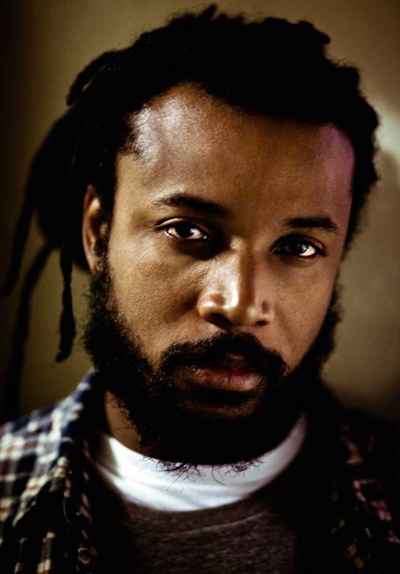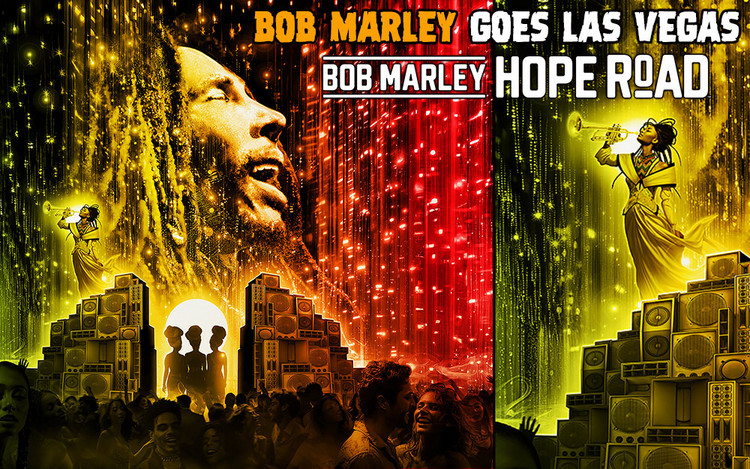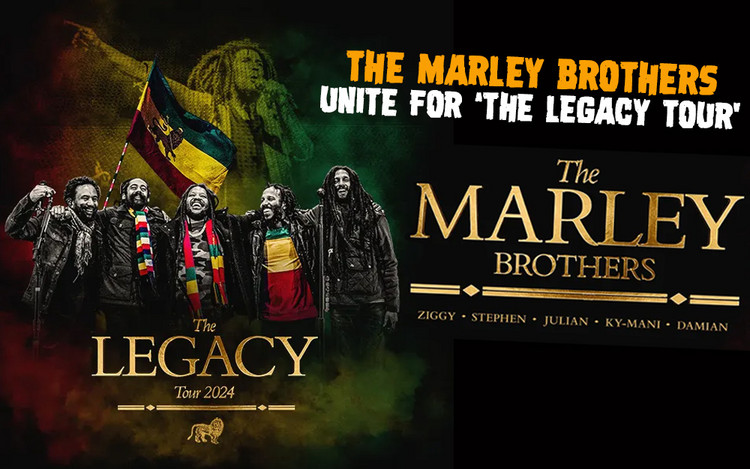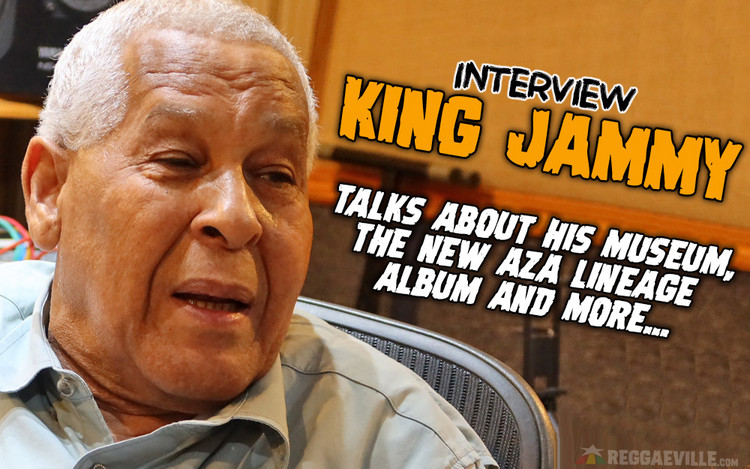Phillip 'Winta' James ADD
Interview with Phillip 'Winta' James - Overstand Entertainment
11/14/2013 by Munchy

Phillip Winta James – keyboarder, producer, label owner of Overstand Entertainment has built his musical reputation over many years working with greats such as The Mighty Diamonds, Damian Marley or Anthony B. Now his second release, the Militancy Riddim, is about to hit the stores digitally and on vinyl, while the selection has already been creating waves on the internet with a mix by DJ Yaadcore even before any full-length song was available to the massive.
I know you as a man of many professions working in various fields – how would you introduce yourself?
Pretty much the same way, you just described me. I am a musician first and foremost. Over the years that I have been doing it now, other aspects of music came into it, like the producing. It was a natural progression in terms of expressing myself. I'd be a musician / producer / songwriter.
What of all these different aspects of your work do you enjoy the most?
I can't really say that I have a favourite. I started out touring originally. The first tour I did was when I was still a teenager. I used to be a touring musician being on the road with veteran groups like The Mighty Diamonds, The Ethiopians, and The Heptones. Those were followed by artists such as Bushman, Anthony B, or Pierpoljak from France. I was doing that for a really long while and then I started being in the studio more and producing. Right now I am mostly producing but it's just because I have been touring for so long. I enjoy every aspect, but right now I find myself wanting to do more productions than touring. It doesn't mean that I stopped though, I still work with Damian.
How does a teenager get to go on tour with all these big artists?
(laughs) Luck! I started out with a unit of four musicians: Jubba White, the drummer of Dubtonic Kru, Veron 'Koxx' Dinnall, the bass player that works with Alpha Blondy right now, and another guitarist named Rohan 'Macka' Gordon. We knew each other from when we were in high school and we had four different instruments, so it automatically became a band: drum, bass, keyboard, and guitar. We made our own way up to a point, where people started noticing us. It was hard work in terms of practising and getting things right. But when people finally recognized us, we seized the opportunity. We were playing mostly 'old reggae' and it was a good base to play with the veterans and tour with them.
How did you pick the keyboard in the first place? Was it your decision or your parents'?
I guess it would have been mine. I still have the memory of my grandmother. She had a melodica at her house and I used to just make noise with it. I didn't really know how to play anything. One day, when I was in high school, I just walked up to the music room and ended up sitting at the piano. I was just fooling around, when the music teacher said: “You want to learn to play something?” and I said: “Alright, cool.”
Eventually you started playing keyboard for Damian Marley and touring with him. When did you meet him?
That was back in 2007. At that time I was freelancing, touring with Anthony B and doing some work with Tarrus Riley. One day I got a call from Llamar 'Riff Raff' Brown, who works as a keyboarder for Stephen Marley. He told me that Damian was looking for a keyboard player and if that was something, I'd be interested in. So I agreed to give them my number and a couple of days later, I was invited to meet Gong at the museum on Hope Road. We were just chilling out, playing some music and the vibe was right how we worked together creatively.  Do you enjoy touring and being in a different city every day?
Do you enjoy touring and being in a different city every day?
I don't mind it. By this point it is something that I am obviously kind of used to. But I was always the type of person, who wanted to see new places. It is the repetitiveness of things, that lead me to do other things such as writing and producing. You might be in a different city, but you're still on a stage every night. That is only one aspect of music that is within me. Creatively you want to have the opportunity to make songs, start them from scratch and build them up. While, when we're on stage we're basically playing the stuff that was actually already recorded.
On the Distant Relatives album of Nas and Damian Marley you are credited for the hand clapping. How did you first get to clap your hands? And how did you master the craft to the point, where you even clapped for Nas and Damian?
That all started out when I was about three years old and my parents used to take me to kindergarten school. In the morning we had devotion, where we got together and sang songs. That was when I realized that I was a pretty decent clapper. So I just perfected the art from these times and kept on clapping, hoping for the opportunity to one day clap on a record.
Through your work as a producer you founded Overstand Entertainment – what is that you got to overstand?
I always really like that word “overstand” - although I don't know if it is officially a word. I really liked what it was suggesting, that you are over standing something instead of being under a stand. It is a more positive thing. I prefer to be above. So when I had to decide for the label, there were probably two other words and possibilities for the name. I wrote them down on a piece of paper and “Overstand Entertainment” won the battle. It has to do with music that we try to provide as well. In Jamaican music has two sides. You have one that is more based deeply in cultural and social commentary, and another that is more playful and jovial. I always gravitated to the side that is more politically aware and socially conscious. So we decided that this is the kind of music that we wanted to do and to cater to those who seek that message. “Overstand” is a concept of being aware.
That is in terms of the content and lyrics of the music. What is it musically speaking?
Dub is a very big part of my sound. As a youth I always felt like I was growing up a decade too late. I was always drawn to the 70s and earlier 80s music and vibe. That was, what I heard, when I used to go out on the road. In Jamaica when a sound system came to play, they would always play the older stuff in the daytime, when they were just stringing up the sound. So as kids that was the time when we were able to go outside. I used to live in St Thomas where Mello Construction and Lee's Unlimited played and I always found myself out there during the day, because my parents wouldn't let me out at night, listening to the older music they used to tune up the system. I liked that a lot and developed an appreciation for Black Uhuru, King Tubby or the works that Sly and Robbie did with Ini Kamoze. It's heavy roots with dub and we try to keep it modern with new, bigger drums and heavier bass – and some keyboards, of course.
For your first two releases, RootsMan and Militancy riddim you worked with many artists of the Reggae Revival, singers such as Jah9, Chronixx, Jesse Royal, or Protoje. Do you have a special connection with that movement?
I wouldn't say that happened by default. Right now those young artists are the future of the music. It just so happens that it is called the Reggae Revival, but even if it wasn't called that, I'd still be working with the same artists. All of them are young and really talented. I know Jesse Royal for a long while and he was the first one I recorded for the RootsMan riddim. When I was still rehearsing with Damian, Jesse used to roll with Ziggy Marley's son Daniel Bambaata. One day I returned from a tour and Kareem Burrell from XTM.Nation contacted me to play keyboard for a young artist. When I reached there I was surprised to see Jesse, because I didn't know his career had taken off like that. He always used to be this quiet, humble youth. When we rehearsed I was really impressed by his live performance and charisma. I also sent my works to Protoje, he liked the RootsMan riddim and introduced me to Jah9, Chronixx, Kabaka Pyramid.
Most recently a photo was released with Protoje by your side. It was his first time being in the studio since the production of The 8 Year Affair and you were working on his contribution to your Militancy riddim. He also mentioned you and Overstand Entertainment playing a role in the production of his third album. What can you tell me about you and him working together by this point in time?
So far it is a very interesting and soulful record. It has a rootsy vibe, heavy drum and bass, and it is like a meeting of worlds, some old and some new styles. It will give you a more 80s kind of sound, similar to King Jammy, King Tubby. His last record had the electronic vibe of Sly and Robbie with songs like Kingston Be Wise or Hail Ras Tafari. Our sound goes back a bit further. We want to take our time crafting the album and give each song the time it deserves and it needs to mature before we can say it is ready. It is a process of coming up with new ideas. We're going to be heavy with samples for this record. Sometimes we start with 20 potential samples, we go through them, and probably end up with only two to keep. We are trying to make sure that the work is the best it can be. There is no stone that we want to be left unturned. We are trying everything that we could ever imagine to do, because we don't want to look back thinking “maybe we should have done something differently”. It has some kind of meticulousness about it (laughs).
LISTEN BELOW TO THE FIRST LEAKED SONGS... MILITANCY RIDDIM









